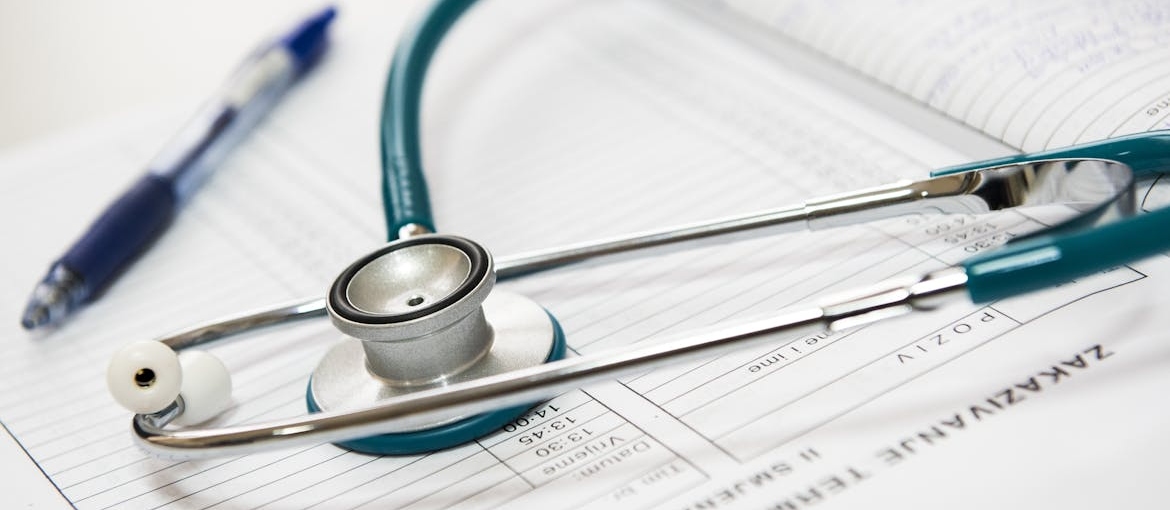Alcohol costs more than just money. It drains bank accounts, impacts careers, and leads to expensive health problems. Quitting alcohol isn’t just good for your well-being—it’s a smart financial decision. The financial benefits of a sober lifestyle go beyond saving on drinks. You’ll spend less on medical bills, legal fees, and nights out. Your job performance improves, opening doors for higher pay and career growth. For those struggling with addiction, support is available. Rehab centers in West Virginia offer affordable options, helping people regain control of their lives without breaking the bank. Sobriety isn’t just about giving something up—it’s about gaining financial freedom, stability, and peace of mind. Taking the first step can change everything, including your future.
Seeking Professional Help for a Sober Lifestyle
Getting sober is life-changing but doing it alone can be tough. Professional help makes the process easier and increases the chances of long-term success. Many people worry about the cost, but treatment can actually save money. The financial benefits of a sober lifestyle include lower medical bills, better job stability, and fewer legal risks. We’ll explore affordable rehab options, free resources, and how professional support can help both recovery and finances.

Financial Benefits of Professional Support
Getting professional help may seem expensive, but it can save you money in the long run. The financial benefits of a sober lifestyle include fewer medical bills, better job opportunities, and less risk of legal trouble. Long term drug rehab WV programs provide structured support, reducing the chances of relapse and repeated treatment costs. Investing in recovery now can prevent serious financial struggles later.
Here’s how professional support can help your finances:
- Lower medical expenses – Fewer hospital visits and long-term health issues.
- Better job stability – Increased focus and productivity can lead to raises and promotions.
- Avoiding legal costs – No more fines, DUI charges, or court fees.
- More control over spending – No wasted money on alcohol or risky behaviors.
- Long-term savings – A clear mind helps with budgeting and financial planning.
Affordable Rehab and Therapy Options
Getting help for addiction doesn’t have to be expensive. Many treatment programs fit different budgets, making recovery possible for more people. Insurance often covers a portion of rehab, reducing out-of-pocket costs. Some programs offer sliding scale fees based on income, making treatment more accessible. Nonprofit organizations and state-funded centers provide free or low-cost options for those who qualify.
An intensive outpatient program West Virginia residents trust can be a cost-effective choice. It offers structured support without the high cost of inpatient care. This allows people to keep working, maintaining financial stability while focusing on recovery. Free support groups and online therapy options also help those needing ongoing guidance. Finding the right help at an affordable price is possible. It’s an investment in a healthier future, both financially and emotionally.

Free and Low-Cost Resources for Sobriety
Getting sober doesn’t have to be expensive. Many free and low-cost resources provide support for those who need help. If you’re employed, you might wonder, does FMLA cover rehab? The Family and Medical Leave Act (FMLA) allows eligible employees to take unpaid leave for treatment without losing their job. Other affordable options are available to help you stay on track without financial stress.
Here are some free and low-cost sobriety resources:
- Support groups – Alcoholics Anonymous (AA) and Narcotics Anonymous (NA) offer free meetings.
- Community health centers – Many provide counseling and treatment at little to no cost.
- State-funded rehab programs – Some states offer free or sliding-scale rehab options.
- Online sobriety programs – Free apps and virtual meetings provide ongoing support.
- Nonprofit organizations – Many charities help cover treatment costs for those in need.
Cutting Everyday Costs by Ditching Alcohol
Drinking adds up fast. Nights out, extra food, and impulse buys drain bank accounts without people realizing it. Cutting alcohol saves money instantly and makes it easier to budget. It also helps people financially recover after addiction, giving them a fresh start. Sobriety means fewer unexpected expenses and more financial control.
What are the unexpected benefits of sobriety? Daily savings in areas most people don’t even think about:
- Lower grocery bills – No more spending on alcohol, mixers, or late-night snacks.
- Cheaper nights out – Restaurants and bars are much more affordable without alcohol.
- Less impulse shopping – No more tipsy online orders or unnecessary splurges.
- Fewer transportation costs – No more rideshares or taxis after a night of drinking.
- More financial stability – Money goes toward important things instead of quick fixes.
Health Savings: How Sobriety Reduces Medical Expenses
Alcohol takes a serious toll on health, leading to expensive doctor visits, medications, and hospital stays. Chronic conditions like liver disease, high blood pressure, and mental health struggles often come with heavy medical costs. Sobriety cuts these risks, saving thousands over time. What are the benefits of living sober? Better health, fewer medical emergencies, and lower insurance premiums.
Older adults face even higher risks from alcohol-related health issues. Rehab for seniors provides tailored treatment to help them regain control and avoid costly medical problems. Many programs offer specialized care for age-related concerns, making long-term recovery possible. Choosing sobriety means fewer prescriptions, fewer hospital bills, and more money for things that truly matter. Your body heals, your wallet benefits, and life becomes more manageable without the constant burden of alcohol-related health issues.

Boosting Your Career and Earning Potential Without Alcohol
Alcohol affects focus, energy, and motivation. It leads to missed deadlines, poor performance, and lost job opportunities. Removing it from your life can improve your career in ways you might not expect. What are the positives of sobriety? Better concentration, stronger work ethic, and a clear mind to handle challenges.
Without hangovers and exhaustion, you show up on time, stay productive, and make a better impression. This leads to promotions, raises, and new opportunities. Networking also improves because you’re fully present in conversations. Sobriety helps you save money and increase your earning potential at the same time. Things you will love about being sober in West Virginia include having more energy for work, better financial stability, and a sharper mind. Success becomes easier when alcohol no longer gets in the way of your goals.
Strengthening Finances and Relationships Without Alcohol
Alcohol strains both finances and relationships. It leads to unnecessary spending, missed responsibilities, and broken trust. Without it, money stays where it belongs—covering bills, growing savings, and funding things that truly matter. Sobriety helps create financial stability, reducing stress and making it easier to plan for the future.
Relationships improve too. Alcohol-fueled arguments, unreliable behavior, and missed commitments fade away. Friends and family start to see the real you, leading to stronger, healthier connections. Conversations become more meaningful, and time spent together feels more genuine.
Sobriety also strengthens professional relationships. Reliability and focus improve, opening doors to better opportunities. Personal and financial growth go hand in hand, making life more stable and rewarding. Choosing to live alcohol-free isn’t just about quitting—it’s about building a better life with stronger bonds and financial security.
Avoiding Costly Legal Troubles and Financial Risks
Drinking comes with risks, and legal trouble is one of the biggest. DUIs, public intoxication, and other alcohol-related charges can cost thousands in fines, legal fees, and lost wages. The economic consequences of substance use go beyond legal costs. Higher insurance premiums, court-mandated programs, and lost job opportunities add up fast.
Choosing sobriety eliminates these risks and keeps more money in your pocket. How much money does being sober save? The answer depends on past spending, but avoiding legal trouble alone can save thousands. No more bail fees, no more court costs, and no more damage control. Sobriety protects both finances and freedom, giving you control over your future. Legal problems don’t just drain money—they take time and energy. Staying sober means avoiding these setbacks and building a more stable life.

Making Smarter Money Moves with a Sober Budget
Sobriety doesn’t just improve health—it also gives you financial freedom. The financial benefits of a sober lifestyle include saving money, reducing debt, and building long-term wealth. Without alcohol expenses draining your wallet, you can take control of your budget and make smarter financial choices.
Redirecting that extra money into savings, investments, and meaningful activities can improve your future. It’s about making choices that support stability and long-term goals. Below, we’ll cover how to shift alcohol expenses into savings, create a budget that fits a sober lifestyle, and explore fun, cost-effective social activities.
Redirecting Alcohol Expenses Into Savings and Investments
Drinking regularly gets expensive. A few nights out a month can add up to hundreds of dollars. Instead of letting that money disappear, you can use it to build financial security. The financial benefits of a sober lifestyle include having extra cash for important goals. That money can cover bills, go toward debt, or be saved for the future.
Start by figuring out how much you used to spend on alcohol, bar tabs, and related expenses. Once you see the number, decide where that money can go. A high-interest savings account can help build an emergency fund. Investing in a retirement account or stocks can grow your wealth over time. Even small changes make a difference. The extra money can also fund experiences that bring real value, like travel, hobbies, or self-improvement.

Creating a Budget for a Sober Lifestyle
Without alcohol in your budget, managing money gets easier. A clear plan helps keep spending in check and builds financial security. The financial benefits of a sober lifestyle include less wasted money and more financial control. A budget ensures you stay on track and make the most of your extra savings.
Here’s how to build a budget that works for a sober lifestyle:
- Calculate past spending – See how much alcohol-related costs used to take from your budget.
- Prioritize essentials – Rent, food, and bills should always come first.
- Set savings goals – Create an emergency fund, pay off debt, or invest in the future.
- Allocate fun money – Plan for hobbies, activities, and self-care without overspending.
- Track spending – Use apps or spreadsheets to stay on top of finances.
Finding Fulfilling, Cost-Effective Social Activities
Sobriety doesn’t mean missing out on fun. It actually opens the door to activities that don’t drain your wallet or health. Nights out drinking can be expensive, but plenty of free or low-cost options are just as enjoyable. The key is finding experiences that bring real connection and fulfillment.

Here are some affordable and meaningful social activities:
- Outdoor activities – Hiking, biking, or visiting parks cost little to nothing.
- Creative hobbies – Painting, writing, or crafting can be both fun and relaxing.
- Fitness and wellness – Yoga, group workouts, or dance classes keep you active and engaged.
- Game nights – Board games, trivia, or card games make for great social time.
- Volunteering – Helping a cause is rewarding and builds strong connections.
Recap of the Financial Benefits of a Sober Lifestyle
Quitting alcohol isn’t just about health—it can change your financial future. The financial benefits of a sober lifestyle include saving money on drinks, avoiding medical bills, and improving job stability. You’ll have more control over your finances and fewer unexpected expenses. Professional support makes sobriety easier and more affordable than many people think. Rehab programs, therapy, and free support groups provide the help needed to stay on track. Investing in recovery now prevents costly setbacks later. Every step toward sobriety adds up to a better future. More savings, stronger relationships, and a clear mind all come with quitting alcohol. You don’t have to do it alone—help is out there, and it’s worth it. Taking control of your life today will lead to financial freedom and long-term stability.



